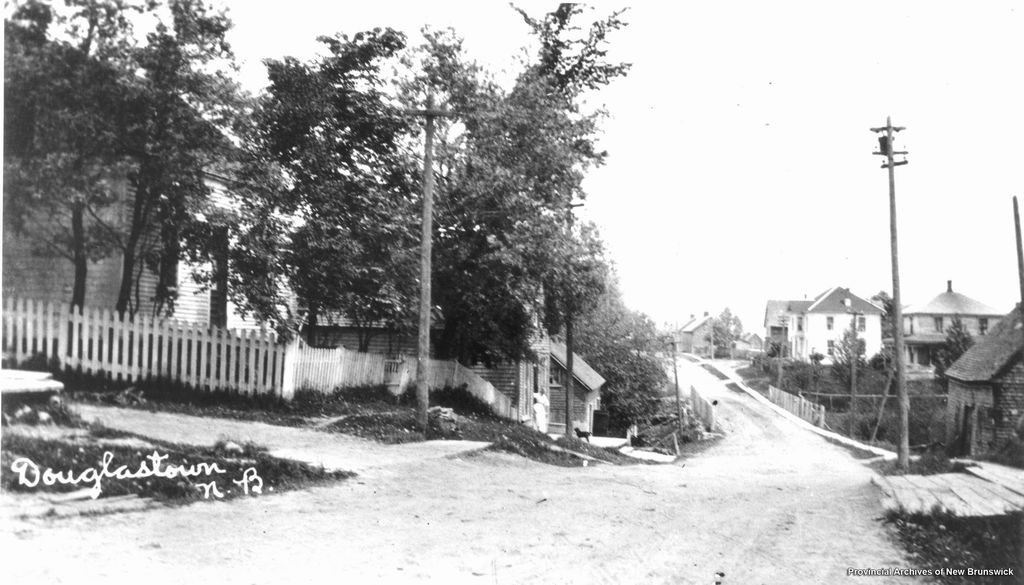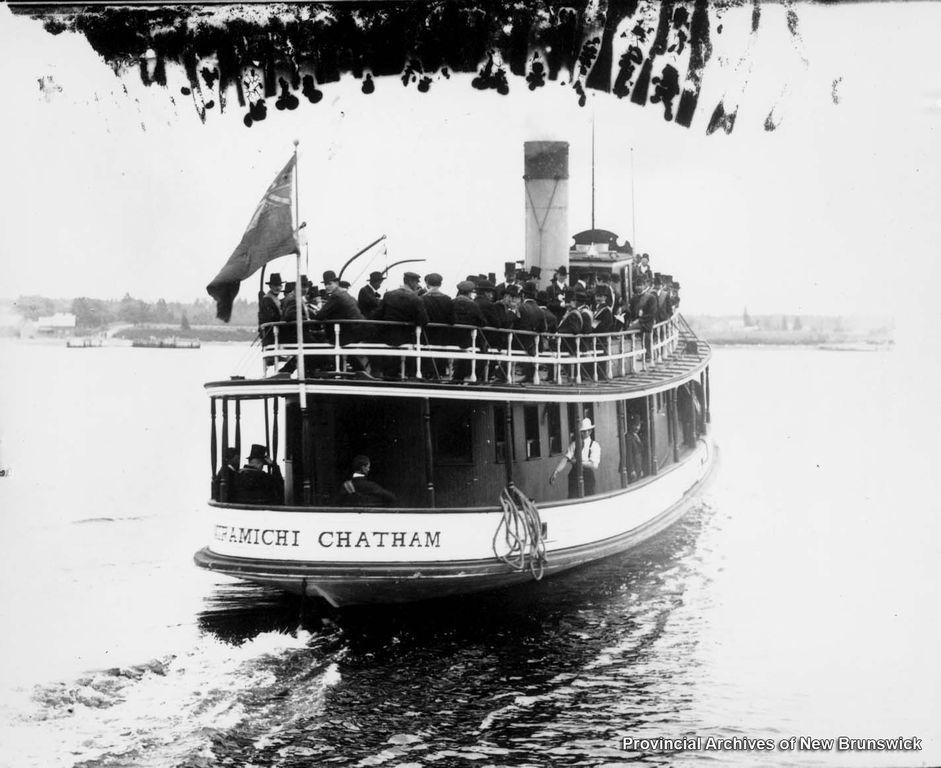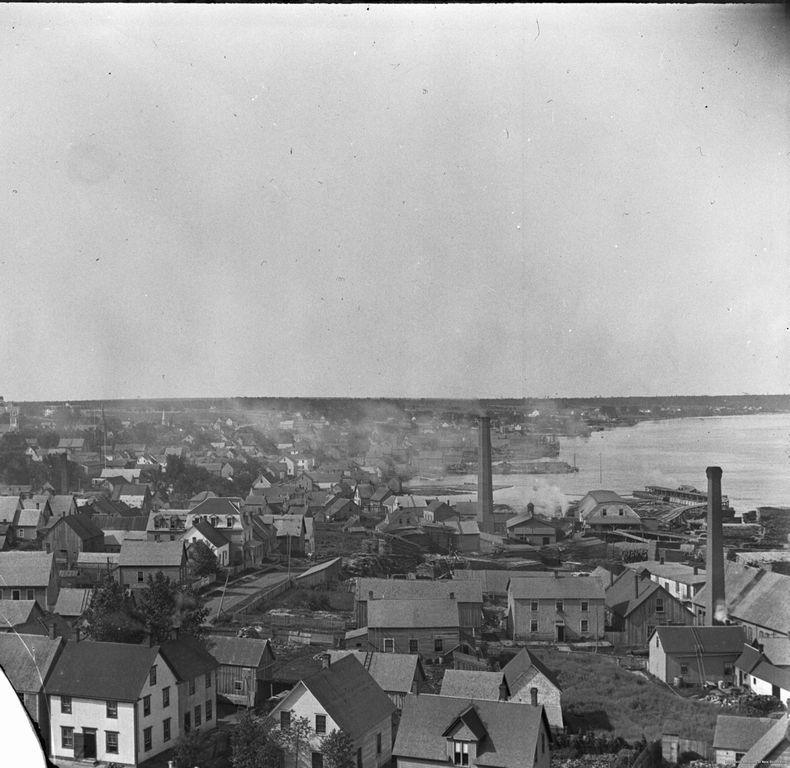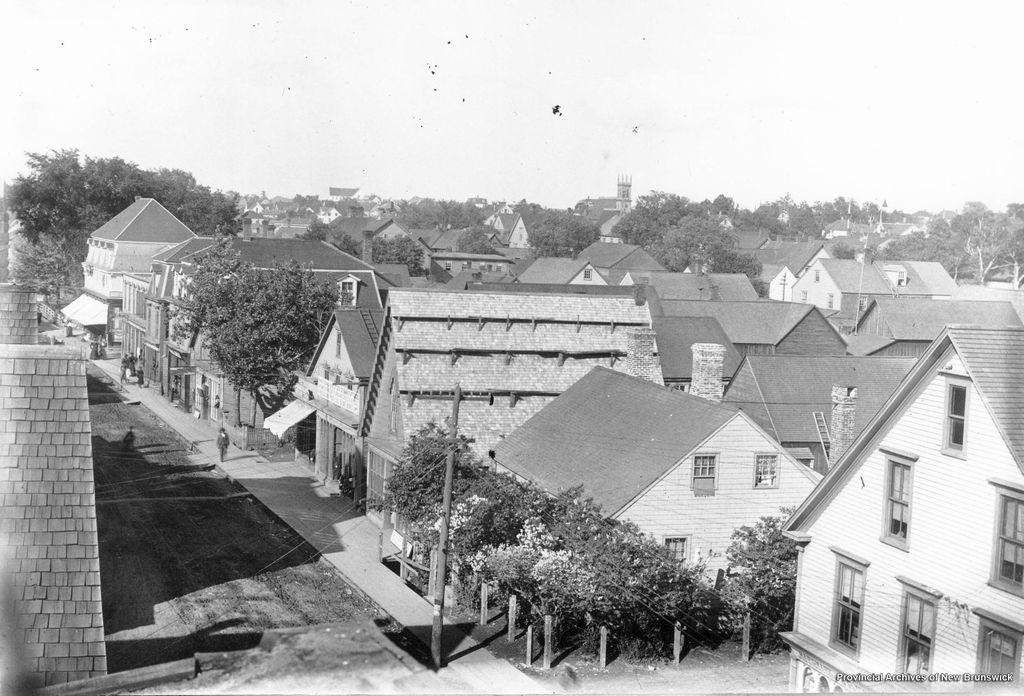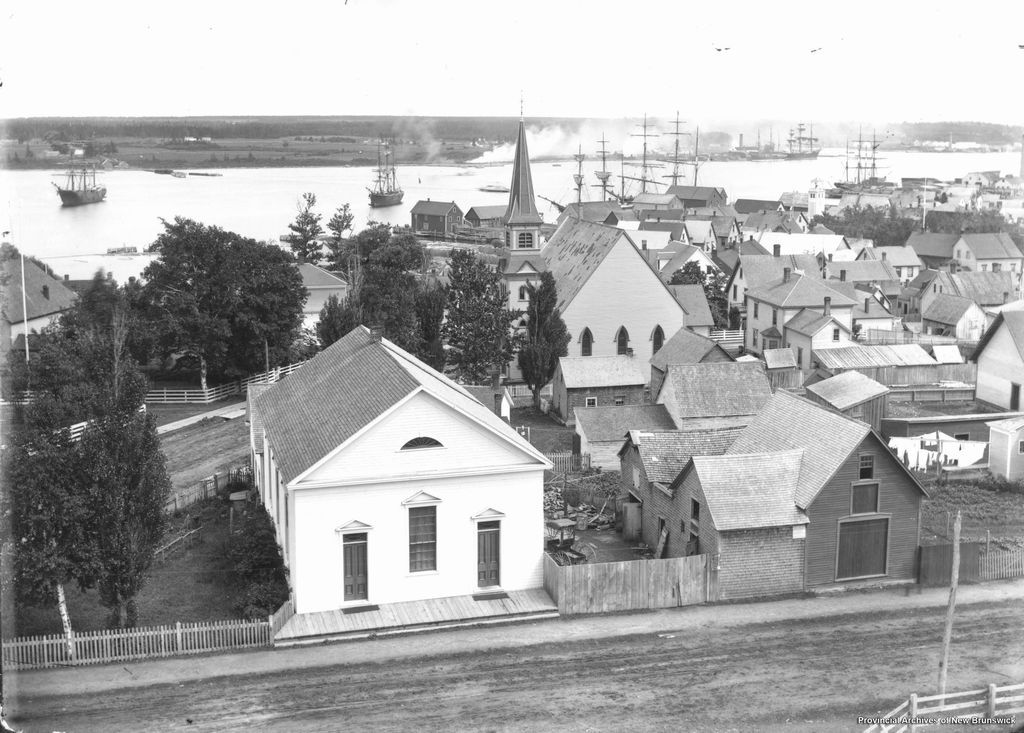R.B. Bennett age 17-18, at the time that he was attending Provincial Normal School.
At the age of 16, R.B. left home for Fredericton, New Brunswick, to attend Provincial Normal School. In order to qualify for a second class teaching certificate he only attended a five month semester that concluded with his graduation on December 17, 1886.
Armed with his new certificate, R.B. headed to Irishtown, New Brunswick, to begin teaching for two terms. At the time, Irishtown was a small farming community of only 20 households located just north of Moncton. The school was of the same small one room school house style that R.B. himself had been taught in. While in Irishtown he boarded with the family of Cornelius Sullivan. R.B. taught 15 girls and 21 boys for which he was paid the sum of $160 for each term.
In January of 1888, after completing the one year teaching experience requirement, R.B. returned to Provincial Normal School in Fredericton to study for his first class teaching certificate. After receiving his certificate at a ceremony on June 8th, 1888, R.B. was offered the position of Principal of the schools in Douglastown, New Brunswick. He was eighteen years old.
R.B. was placed in charge of four schools with a total of 159 students and three other teachers. For the term ending June 30, 1889, he was paid $300. Many in the community had misgivings about R.B.'s abilities to handle such a big job at such a young age, but he soon proved himself to be an able school master. R.B. himself taught the upper grades - six, seven, and eight. He demanded hard work from his students and marked their work meticulously. The student with the highest marks in his eighth grade class in 1889 only earned an average of 60%. While he did demand hard work from his students he was also quick to assist them. He gave extra classes to those who wanted to attend Provincial Normal School in Fredericton. Thanks in part to R.B.'s high standards for his students they all had little difficulty with their work at the Normal School.
R.B. was not shy in voicing his opinion of the educational system in Douglastown. In his report to the Board of School Trustees for District No. 6 in 1890 he wrote:
"Gentlemen:
It is incumbent upon me to submit my annual and final report on the schools under my supervision.
The remarks made at the close of last term are applicable with equal force to the work of this term.
During a stay of nearly two years in this place, I have come to the conclusion that the material is not lacking here to produce pupils of more than ordinary ability but while I feel that such is the case I cannot but remark that unless the parents are aroused and awakened from the apathy with which they now view all matters connected with school work, the fine abilities of their children will never be shown.
I would remark that the school officers are sadly deficient in their duties. During my stay here I have not been favored by a visit from one of the trustees.
Richard B. Bennett"
Although Chatham, Newcastle, Douglastown and the surrounding areas were amalgamated into the City of Miramichi in 1995, the communities were always closely tied together by the Miramichi River. Transportation across the river was an important part of daily life. One method that was widely used was the ferry service.
While standing on the Douglastown ferry dock in 1889, R.B. was approached by a ten year old boy and the two struck up a conversation. Despite the nine-year difference in their age, the two found friendship that would last a lifetime. The boy was William Maxwell (Max) Aitken, the later Lord Beaverbrook.


